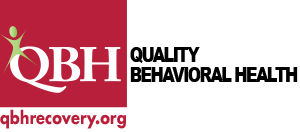Case Management Services

Case Management
Case management services are provided at QBH facilities where MAT programs are provided on the east side of Detroit and in Sterling Heights, both of which are areas highly populated by the types of citizens likely to need QBH’s services. It is a joint effort of the counselor and/or case manager and the consumer; outside care may be arranged by the counselor/case manager after consumer input and agreement or arrangement may be made by the consumer with guidance from the counselor/case manager, if the consumer is able and willing.
Case management is a program designed to coordinate, plan, provide, evaluate and monitor services or recovery utilizing a variety of resources on behalf of, and in collaboration with, a client who has a substance use disorder. A substance use disorder case management program offers these services through designated staff working in collaboration with the substance use disorder treatment team and as guided by the individualized treatment planning process.
Case Management activities are as follows: assessment; reassessment; service plan; linking/coordinating and monitoring. The counselor assigned to a consumer is primarily responsible for coordination of care delivered within the company to consumers assigned to the counselor. Such activities may also be assisted by a case manager, as appropriate.
Key areas of care coordination internal to the Company include, but not exclusively:
- Overseeing full implementation of the consumer’s treatment plan.
- Orientation of the consumer to the services s/he will be receiving.
- Promoting the consumer’s participation in discussion of his/her plan, goals and status on an ongoing basis.
- Identifying and addressing any gaps in service provision.
- Sharing information on how to access other community resources relevant to the consumer’s needs.
- Advocating for the consumer, when needed.
- Communicating information regarding the consumer’s progress to appropriate persons.
- Involving the family or legal guardian, when permitted.
- The consumer’s assigned Counselor and/or case manager, if applicable, will coordinate, or assist the consumer to personally contact the service agency or other resource(s) needed to achieve their treatment plan objectives, when needed.
- Counselors/case managers are knowledgeable of and/or can locate community services and resources available in the Detroit County/Macomb County areas, as appropriate to the location where they provide services.
- Counselors/case managers place particular emphasis on identifying with the consumer whether they have sufficient support systems to sustain and move them forward in their recovery during and post-treatment and help the consumer to identify and select helpful resources to build that support, if lacking, prior to the consumer’s discharge.
The clients are provided with services or resources based on their specific needs. Some of the services or resources that are directed by the specific needs of the consumer. Consumers might need help with different things – they may include but not They may include, but not exclusively:
- Outreach to encourage the consumer’s participation.
- Coordination or assistance with crisis intervention and stabilization services.
- Consumers with identified mental health needs are referred to appropriate treatment
- Optimization of resources and opportunities through community linkages and enhanced social support networks.
- Michigan Rehabilitation Services is used to assist consumers with education, employment, personal needs or activities of daily living.
- DHS is used to assist with income, disability and food stamp and other financial needs
- NA and/or AA 12 Step Recovery meetings and mutual help groups to assist with recovery progress
- Local Medical Centers/Hospitals to assist with medical and other health care needs
- Access to transportation.
- Facilitating the transition process, including arrangements for follow-up services.
- Coordinating any services provided outside of the Company.
- Securing safe housing that fits the needs and abilities of the consumer.
- Engagement in other meaningful activities to build community ties, support structures, and/or sustain recovery and well-being, etc.
- Linkages for skill development such as budgeting, meal planning, personal care, housekeeping and home maintenance or other identified needs if not covered by QBH program didactics or if development beyond what is provided is needed.
Peers play a vital role in the recovery process. They are assigned upon admission and work individually with each client. We propose to employ five more peer recovery coaches for the program.
QBH will work with the existing rates established by DWIHN.
